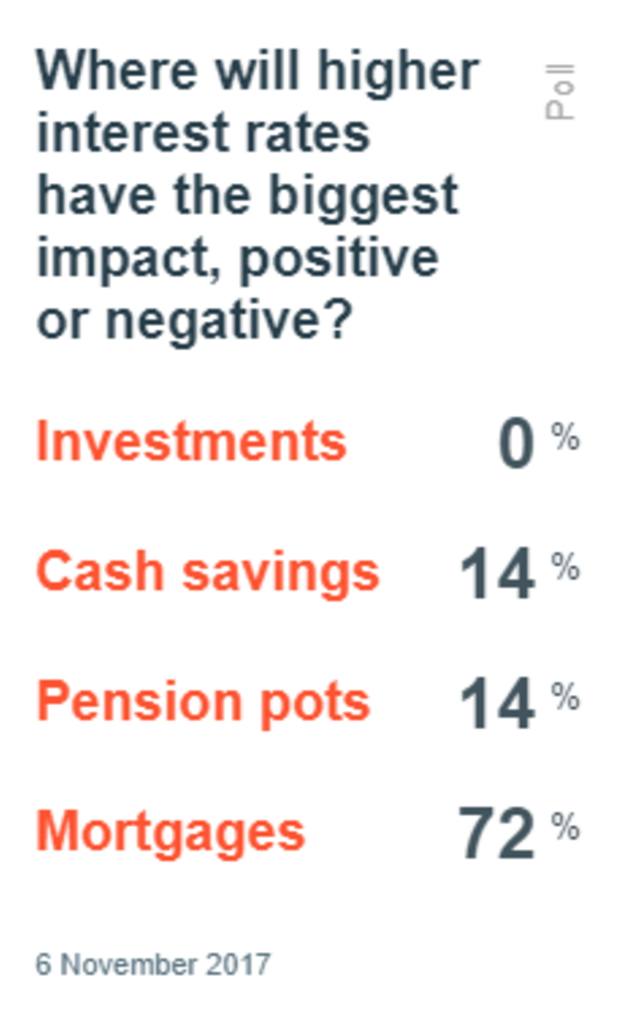

The latest FTAdviser Advantage poll asked where will higher interest rates have the biggest impact, negatively or positively?
It revealed 72 per cent of advisers thought it will have the biggest impact on mortgages, followed by 14 per cent on cash savings and another 14 per cent on pension pots.
Richard Stone, chief executive at The Share Centre, said: “The poll results clearly show that the impact of a rate rise is most likely to be felt by those with mortgages – and that will be a negative impact as repayments rise.
“We have long argued that it is unlikely banks will pass on the full benefit of the rate rise to savers, and therefore while savers might expect to see some benefit, this will be very modest.”
The Bank of England’s Monetary Policy Committee voted to raise the base rate from 0.25 per cent to 0.5 per cent on 2 November.

Mr Stone explained banks already have plenty of cash deposits.
“An impact of quantitative easing has been to increase liquidity within the banking system,” he said.
“If you consider cash to be a commodity that banks have to pay for (from savers) and then sell on (to borrowers), they already have a plentiful supply and so do not need to pay more to ‘buy’ more – i.e. they do not need to increase rates to attract more deposits.
“They can though, largely because of the way mortgage products are linked to base rate, pass on the cost to borrowers.”
Rachel Springall, finance expert at Moneyfacts, observed since the start of November the base rate hike had caused mortgage pricing to rise with much more urgency than the savings market.
She said: “Even before the base rate announcement, we noticed fixed rates rising from multiple lenders.
“Savers will have a long wait ahead of them to see a rejuvenation in the market, as providers will need to desire their deposits before they compete in their pricing. We have seen very few increases recently and from what is to come from the biggest banks in December isn’t going to make too much difference to savers.”
Scott Gallacher, chartered financial planner, agreed with the poll results.
But he also warned fixed interest investments and pension funds are generally the biggest losers from rate rises.
He said: “We are very concerned that many cautious investors may have bought these traditionally low risk investments not realising the potential losses that could occur from rising interest rates.
“Some investors might even be unaware of their exposure to fixed interest as those holdings might be indirect via a traditional cautious managed-type fund.
“While pension freedoms have made drawdown much more attractive recently, the more cautious approaching retirement might benefit from rising annuity rates but this has to be considered against any losses they might experience on their fixed interest holding.”
eleanor.duncan@ft.com



